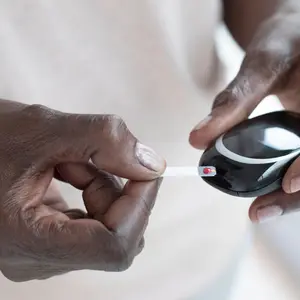

Complementary and Alternative Medicine (CAM)

Complementary and Alternative Medicine (CAM)
Mindfulness Meditation and Pain Reduction
A 2025 study published in Biological Psychiatry found that mindfulness meditation reduces pain more effectively than a placebo and does so through different brain mechanisms than the placebo effect uses. Conducted by researchers at the University of California San Diego and Dartmouth College and funded by the National Center for Complementary and Integrative Health, the study used advanced brain imaging and machine learning to explore how various interventions affect pain perception in the brain.
The study analyzed data from two previous trials involving 115 healthy adults. Participants were randomly assigned to one of four groups: mindfulness meditation, sham-mindfulness meditation, placebo cream, or a control group that listened to an audiobook. Mindfulness meditation participants were taught to focus on their breath and to observe thoughts and feelings without judgment. Those in the sham-mindfulness group were led to believe they were practicing mindfulness but did not receive proper instructions. The placebo group received a cream they were told would relieve pain, though it had no active ingredients.
All groups completed four 20-minute sessions of their assigned activity. Pain was then induced using controlled heat stimuli on the leg while participants underwent brain scans.
Results showed that mindfulness meditation significantly reduced pain intensity and unpleasantness more than all other groups. Brain imaging revealed that it lowered activity in neural patterns related to both physical pain (neurologic pain signature) and emotional response to pain (negative affective pain signature). In contrast, the placebo cream mainly affected brain areas related to expectation and belief (stimulus intensity independent pain signature-1).
These findings suggest that mindfulness meditation reduces pain by directly altering both sensory and emotional pain processing in the brain, unlike the placebo effect, which works through expectations. While promising, further research is needed to confirm if these results apply to people with chronic pain, not just healthy individuals.


 By
By







